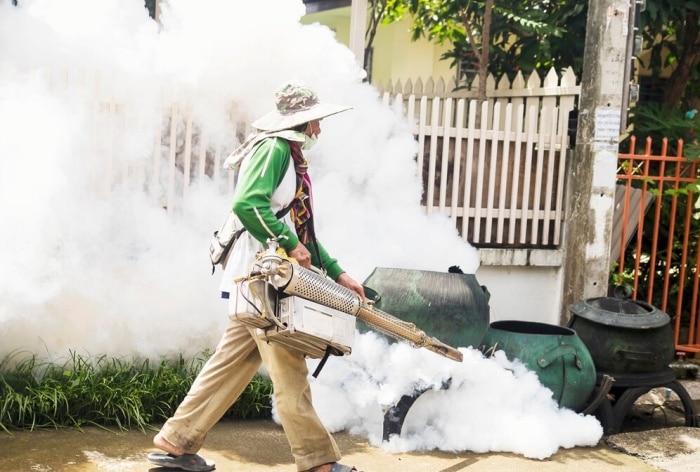Dengue cases are exponentially rising across cities despite the drop in temperature.

Dengue Cases Rising: Dengue cases are ona constantrise in Uttar Pradesh and Delhi. It has surpassed the 16k mark in UP and remains unabated. In Delhi, the cases reportedly more than last year as well. According to the World Health Organisation About half of the world’s population is now at risk of dengue with an estimated 100–400 million infections occurring each year. This year India has witnessed new strains of Dengue spreading infection, several deaths related to dengue and more. However, with dropping temperatures, people expect a dip in dengue infection as well. So, does temperature really affect the spread of dengue?
Here is what we know on how mercury may affect the spread of the infection.
HOW DOES TEMPERATURE AFFECT THE SPREAD OF DENGUE?
Low Temperature:
Low temperature tends to decrease dengue. The Aedes aegypti mosquito, which transmits dengue, is less active and less able to replicate the dengue virus at lower temperatures. A study published in the journal PLOS Neglected Tropical Diseases found that the incubation period for the dengue virus in Aedes aegypti mosquitoes increased from 7 days at 26°C to 21 days at 21°C. This means that mosquitoes at lower temperatures take longer to become infectious and transmit the virus.
Overall, the evidence suggests that low temperatures can decrease dengue transmission. This is because mosquitoes at lower temperatures are less active, less able to replicate the dengue virus, and produce fewer dengue virus particles.
High Temperature:
Mosquitoes are more active in warmer temperatures. Aedes mosquitoes, which transmit dengue, are more active when temperatures are above 25°C (77°F). This is because warmer temperatures speed up their metabolism and make them more likely to bite.
The dengue virus replicates faster in mosquitoes at higher temperatures. This means that mosquitoes can become infectious more quickly and transmit the virus sooner.
However, It is important to note that temperature is not the only factor that affects the spread of dengue. Other factors, such as rainfall, humidity, and urbanization, also play a role. However, temperature is a key factor that is likely to become increasingly important in the future as climate change continues to warm the planet.
DENGUE: PREVENTION TIPS
- Wear full sleeves clothes and lowers
- Maintain proper hygiene
- Keep surroundings clear
- Do not allow water to stagnate
- Wear mosquito repellants
- Eat immunity-boosting food
- Stay hydrated
Good news! India.com is now on WhatsApp Channels. Subscribe today by clicking the link and stay updated with the latest news on entertainment and lifestyle. Click here!
